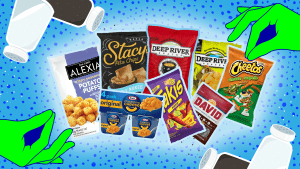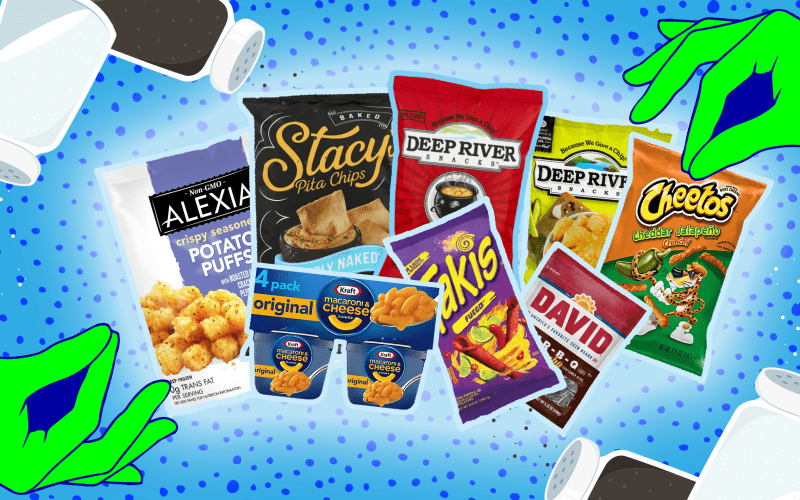Salty snacks have become a staple indulgence in many diets, offering an explosion of flavors and textures that tempt our taste buds. However, their place within a balanced diet is a subject of debate due to their often-high salt content and potential health implications. Balancing the enjoyment of these snacks with a nutritionally sound and environmentally conscious diet is crucial for overall well-being. Let’s explore their role, moderation strategies, and ways to integrate them sustainably.
Understanding the Role of Salty Snacks
Salty snacks, while enjoyable, are often high in sodium, unhealthy fats, and calories, which, when consumed excessively, can lead to health issues like hypertension, heart disease, and obesity. However, they can still have a place in a balanced diet if consumed in moderation and complemented by nutritious foods.

Importance of Moderation
- Portion Control: Enjoying salty snacks in controlled portions helps manage sodium intake. Dividing snack portions into smaller servings and avoiding mindless eating aids in moderation.
- Frequency: Limiting the frequency of consuming salty snacks reduces overall sodium intake. Opting for them occasionally rather than daily diminishes their impact on health.
Integration into a Balanced Diet
- Pairing with Nutrient-Dense Foods: Combining salty snacks with nutrient-rich foods like fruits, vegetables, or whole grains balances the meal and provides essential vitamins, minerals, and fiber.
- Homemade Options: Creating homemade versions of salty snacks allows control over ingredients, reducing sodium content and unhealthy additives. For instance, baking homemade potato chips using minimal salt or air-popping popcorn without excess butter.
Environmental Consciousness in Snacking
- Choose Sustainable Brands: Opt for snack brands prioritizing eco-friendly practices, using recyclable or biodegradable packaging, and sourcing ingredients responsibly.
- Support Local and Organic: Favor snacks made from locally sourced, organic ingredients to minimize the carbon footprint associated with transportation and promote sustainable farming practices.
Mindful Snacking Practices
- Read Labels: Being aware of nutritional information and ingredients helps in selecting snacks lower in sodium, unhealthy fats, and artificial additives.
- Portability and Convenience: Choosing snacks that are convenient to carry, portioned beforehand, and easy to access reduces the temptation to opt for less healthy alternatives on-the-go.
Encouraging a Balanced Approach
Emphasizing a balanced approach to snacking involves appreciating variety, understanding the nutritional value of foods, and fostering mindfulness in eating habits. Enjoying salty snacks in moderation while embracing a diverse range of nutrient-dense foods promotes overall health and satiety.

Conclusion
Salty snacks, though often criticized for their nutritional drawbacks, can be part of a balanced diet when consumed mindfully and in moderation. Strategies like portion control, choosing healthier options, and integrating them within a diverse and nutritious diet are key to reaping their enjoyment without compromising health.
Moreover, aligning snacking habits with environmental consciousness by supporting sustainable brands and making informed choices contributes to a healthier planet. By striking a balance between indulgence and nutrition, individuals can savor their favorite salty snacks guilt-free while maintaining overall well-being and sustainability.












